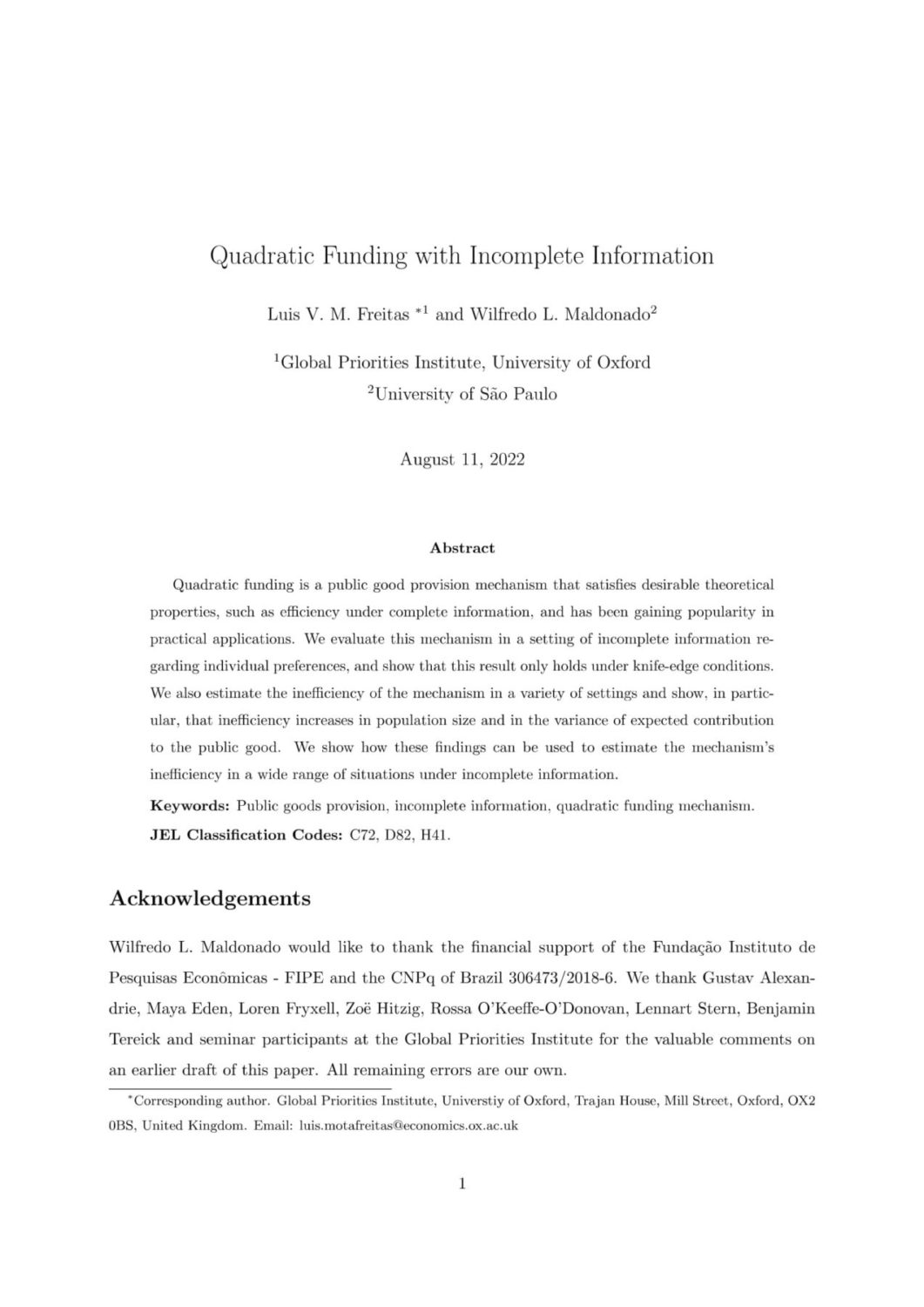Quadratic Funding with Incomplete Information
Luis V. M. Freitas (Global Priorities Institute,
University of Oxford) and Wilfredo L. Maldonado
(University of Sao Paulo)
GPI Working Paper No. 10 - 2022, published in Social Choice and Welfare
Quadratic funding is a public good provision mechanism that satisfies desirable theoretical properties, such as efficiency under complete information, and has been gaining popularity in practical applications. We evaluate this mechanism in a setting of incomplete information regarding individual preferences, and show that this result only holds under knife-edge conditions. We also estimate the inefficiency of the mechanism in a variety of settings and show, in particular, that inefficiency increases in population size and in the variance of expected contribution to the public good. We show how these findings can be used to estimate the mechanism’s inefficiency in a wide range of situations under incomplete information.
Other working papers
Evolutionary debunking and value alignment – Michael T. Dale (Hampden-Sydney College) and Bradford Saad (Global Priorities Institute, University of Oxford)
This paper examines the bearing of evolutionary debunking arguments—which use the evolutionary origins of values to challenge their epistemic credentials—on the alignment problem, i.e. the problem of ensuring that highly capable AI systems are properly aligned with values. Since evolutionary debunking arguments are among the best empirically-motivated arguments that recommend changes in values, it is unsurprising that they are relevant to the alignment problem. However, how evolutionary debunking arguments…
Estimating long-term treatment effects without long-term outcome data – David Rhys Bernard (Paris School of Economics)
Estimating long-term impacts of actions is important in many areas but the key difficulty is that long-term outcomes are only observed with a long delay. One alternative approach is to measure the effect on an intermediate outcome or a statistical surrogate and then use this to estimate the long-term effect. …
Dynamic public good provision under time preference heterogeneity – Philip Trammell (Global Priorities Institute and Department of Economics, University of Oxford)
I explore the implications of time preference heterogeneity for the private funding of public goods. The assumption that players use a common discount rate is knife-edge: relaxing it yields substantially different equilibria, for two reasons. First, time preference heterogeneity motivates intertemporal polarization, analogous to the polarization seen in a static public good game. In the simplest settings, more patient players spend nothing early in time and less patient players spending nothing later. Second…

